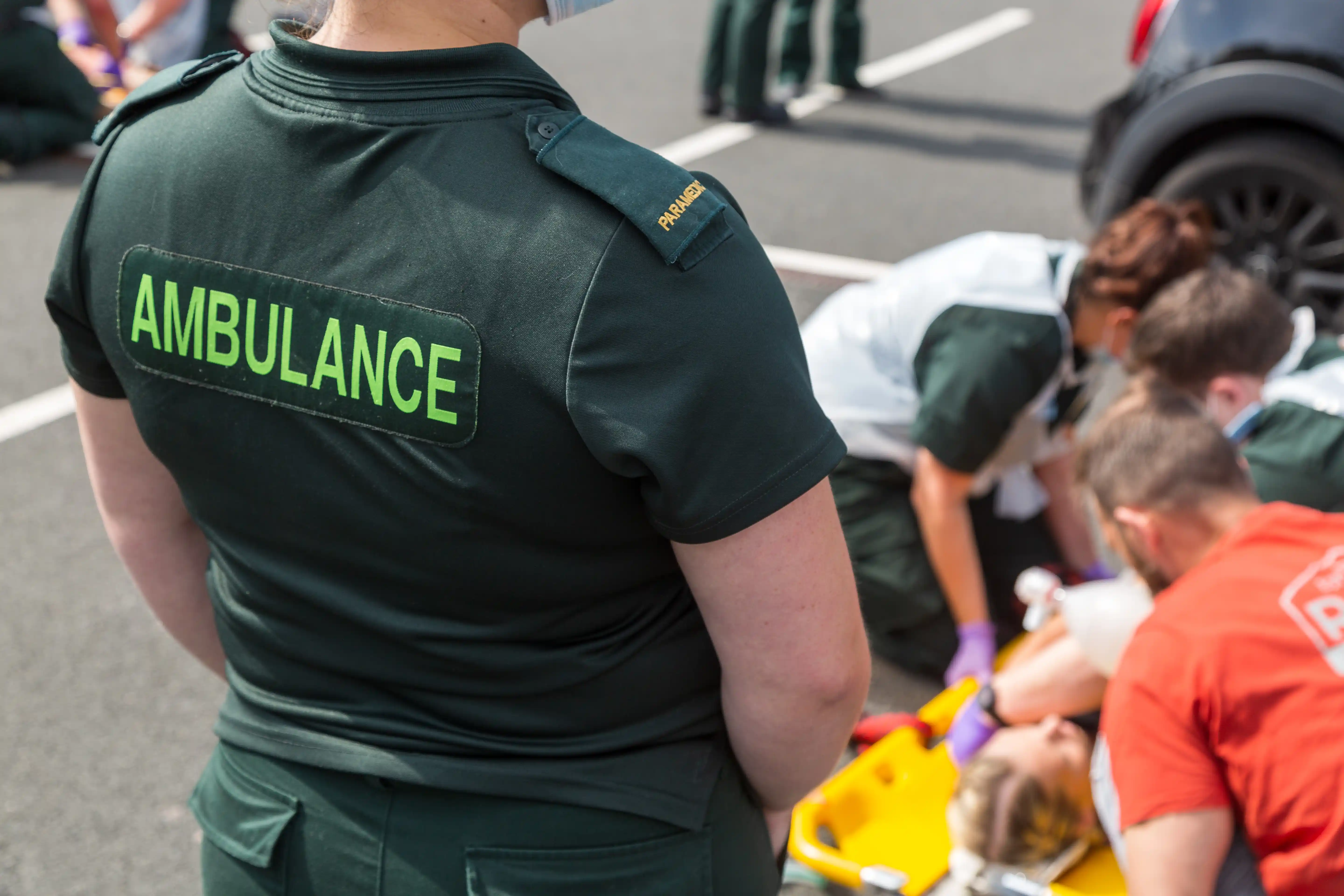BSc (Hons) - Paramedic Science (Degree Level Apprenticeship)
Upon successful completion, the BSc (Hons) in Paramedic Science programme will enable you to apply for registration as a Paramedic with the Health and Care Professions Council (HCPC), and practice under the protected title of Paramedic.
The structure of the award has been developed through mapping against the HCPC Standards of Proficiency for registered paramedics, the Institute for apprenticeships and technical education’s paramedic standard, the Quality Assurance Agency's benchmark statements for Paramedic Science, and the College of Paramedics (CoP) 2019 Curriculum Framework Guidance.
The award recognises the broad knowledge, skills and behaviours required of a Paramedic, and incorporates a strong work-based learning component, with a skills framework mapped to the requirements of the role.
The BSc (Hons) in Paramedic Science sits within the Centre of Excellence in Paramedic Practice, as part of the Institute of Health.

Course Overview
A Degree Apprenticeships combines vocational work-integrated learning with academic study, allowing you to study for a degree whilst you take part in practical, on the job training. The University of Cumbria is committed to offering practice-based learning, combined with robust employment-focused academic design and delivery, equipping you with the knowledge, skills and behaviours to succeed in your chosen profession.
Learners will need to meet the accreditation of prior learning and all other entry requirements to join the programme at the start of level 5. The programme of study is delivered over a 24-month period through a blended learning delivery model that will see learners engaging with skills and simulation on site and theory in an online environment.
Assessments are balanced throughout our modules, using a variety of methods designed to not only reflect the diverse and evolving paramedic role, but to suit the diverse number of learning needs, styles and preferences of our learners.
Academic writing is an important part of the degree apprenticeship course. It allows learners to formalise their thinking and develop their critical appraisal skills, essential for the role of the modern paramedic. For those learners who may find the prospect of academic writing daunting, the University of Cumbria provides a wide range of academic support. Prospective applicants may want to consider early engagement in university support here.
It is recommended that learners have a laptop or PC to engage with all aspects of the programme while studying.
On this course you will...
- Be supported by a paramedic academic team that have extensive experience in supporting learners with a range of academic abilities and educational backgrounds.
- Be supported by a paramedic academic team that has expertise in delivering Technology Enhanced Learning to support both the work-based and theoretical aspects of the course.
- Be supported by a personal tutor who will work closely with you as you progress through your studies, including conducting progress reviews with yourself and your employer.
- Be provided hours for independent study both within the curriculum and by your employer.
- Be provided with an iPad so you can access your programme of study remotely, including all practice assessment documents which will be needed in the clinical practice environment.
- Be provided with a wide range of support services, including academic support, personalised librarian support providing award-winning electronic skills, IT support, mental health and wellbeing services and many more.
Find out more about studying with us
Attend an Open Day at Cumbria
An Open Day is your opportunity to explore one of 5 campuses, meet your lecturers, and find out how the University of Cumbria could become your new home.




